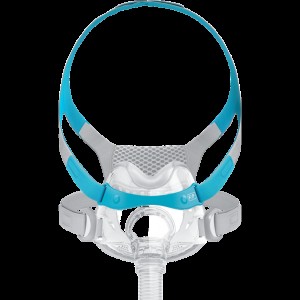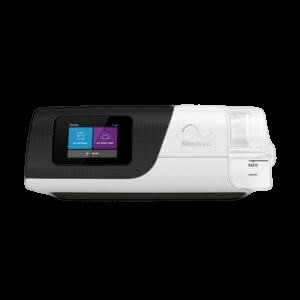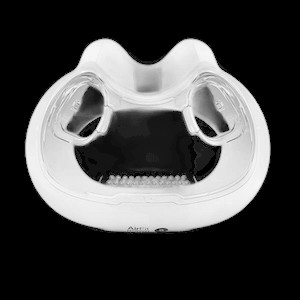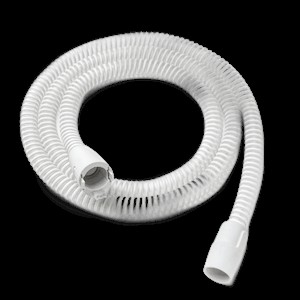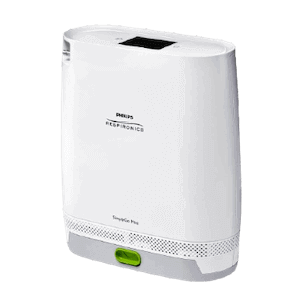Sleep Apnea Study
So, you have finally decided to get a Sleep Study, congratulations! (If you are still unsure if you need a sleep study click here to ready about what sleep apnea is and to determine if you have it.) This is the first step to treating your Sleep Apnea. But, is it better to get an In-home sleep study or to get an In-Lab Sleep Study? Just like everything, this is a hard question, but we will attempt to leave you informed enough to make a decision on this matter.
What's the Difference in Testing?
Just as they sound, an In-home sleep study takes place in your home, while an In-Lab study takes place at a medical facility. There are a couple differences between an In-home and In-Lab sleep study:
- Location of the test
- What the testing can and cannot diagnose
- Level of
That said let's take a closer look.
Neither of these tests will be painful in any way. That said, an In-home sleep study is likely to be far more comfortable. This is because you are, of course, in the comfort of your own home. If you need to grab a snack before bed, or to snuggle up with your favorite furry pal you can.
To be fair to the modern In-Lab sleep tests, most have improved in recent years by upgrading their accommodations to make them appear less like a hospital and more like a hotel room. Yet, the In-Lab sleep test is notorious for the various attachments to your body during the test and the lack of rest you will get just being away from home. The In-home will have far less wires and attachments than an In-Lab study will have, and it will be likely easier to sleep when you know no one is watching you through the night. Because of these factors it is clear to see that an In-home sleep study will be the most comfortable of the two.
Which is Cheaper?
It was a little difficult to find exact figures for an In-Lab sleep study. However, from what is to be found it costs on average $600-$5,000 or more per night. In-home tests cost, on average, $250-$600 per night. RespShop.com does offer an In-home sleep test that does run on the cheaper end of this range which can be found here.
Pricing may also depend on if insurance is being used so it is best to consult with your doctor. If your doctor suspects you have central sleep apnea, which is more severe, they may require you to get an In-Lab test. However, some insurance companies may only cover one type of test so personal research is key. Please note that RespShop does not accept insurance, but your insurance may be willing to reimburse you. RespShop.com also advises always talking to your insurance company before ordering a sleep study.
It is to be noted that, short term, the In-home sleep study will certainly save you money. However, if the equipment does not give an accurate reading at night or this machine under reports your symptoms at night, your doctor will likely have you do an In-Lab sleep test to get a better reading. In this case you will be paying more than you would had you gone with just the In-Lab sleep study. Because of this, we must stress that discussing both what you and your doctor want from this study is key to get accurate results and (hopefully) save you money along the way.
What about During my Sleep Study?
So, you have decided which type of sleep test you want to take, and you have set it up to take your sleep study. So how can you get the most accurate test results?
- No Alcohol: It is recommended to have no alcohol on the day of your sleep study, nor should you have any caffeine after noon that day.
- Take Out Your Hair Gel: If you are taking an In-Lab test you should wash out any hair gel or product in your hair. Failure to do so can give in-accurate test results.
- Record Your Sleep Times: If you are taking an In-home sleep study it is highly recommended to closely monitor and record when you go to sleep and when you wake up. This helps to give the doctor who is reading your results more accurate data to work with.
- Put that Cigarette Away: You should not smoke while wearing equipment for the sleep study. Needless to say, this too can give in-accurate data and will not benefit you in the long run.
- Discuss Your Medications: Finally, as a reminder it is best to discuss with your doctor if your medications will interfere with the sleep test at the time of booking. Follow your medications as directed unless indicated otherwise by your doctor.
So Which Sleep Test is Better?
Like anything in life this is very much a personalized question. Is your sleep apnea mild enough or severe enough to merit an In-Lab sleep study? What about your own personal comfort? Will you achieve more accurate results at home or in some sleep lab? For some people this may even come down to just the simple matter of money. Which one can you afford?
These questions aren't easy questions to answer nor should they be taken lightly. It is well worth, and recommended, to discuss options with your doctor and your family. Spouses/Partners can be indispensable in knowledge, as well, because they have seen us while we are asleep. Ask them if they have noticed any patterns and then parrot these back to your doctor. Remember: Your doctor is a trained professional and will put you on the best track to get healthy.
